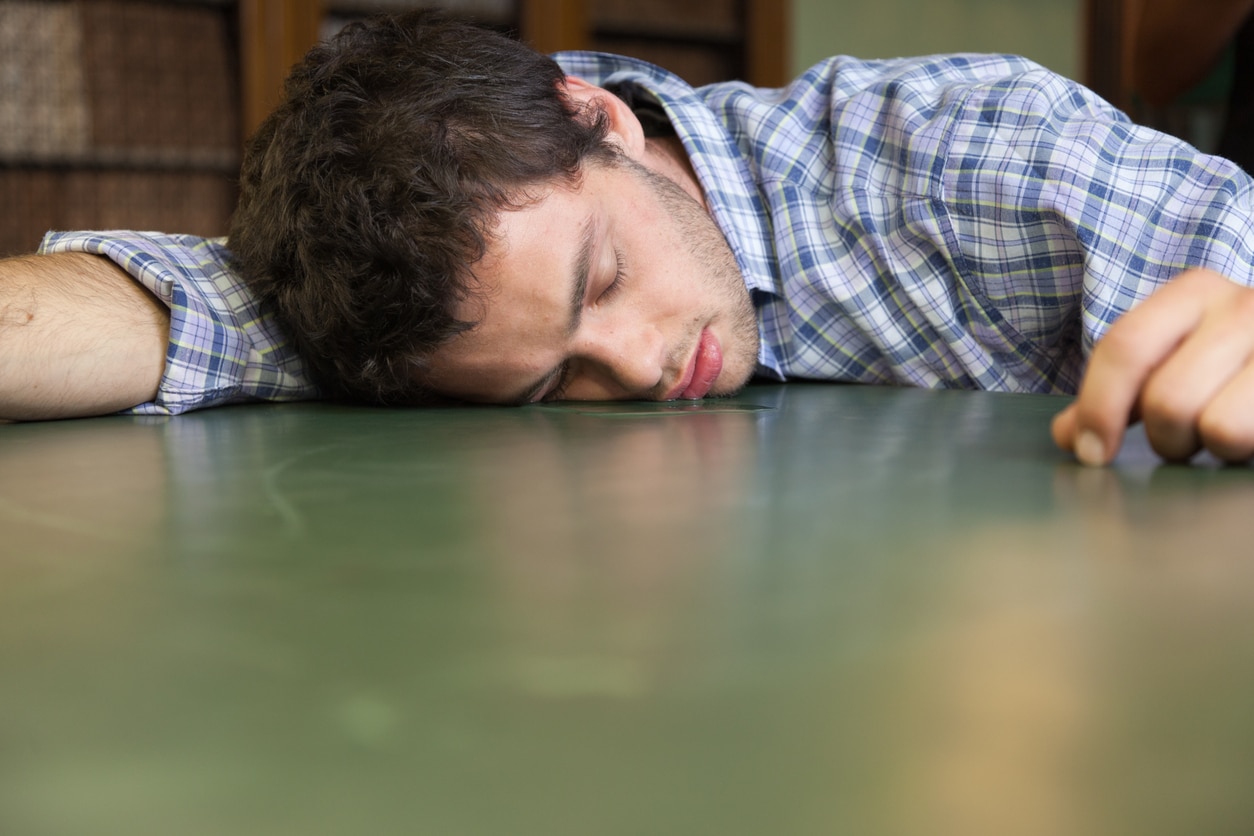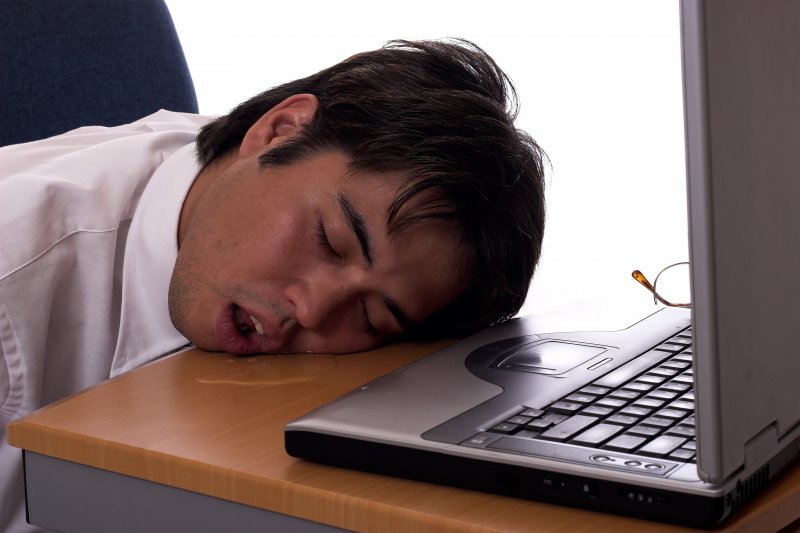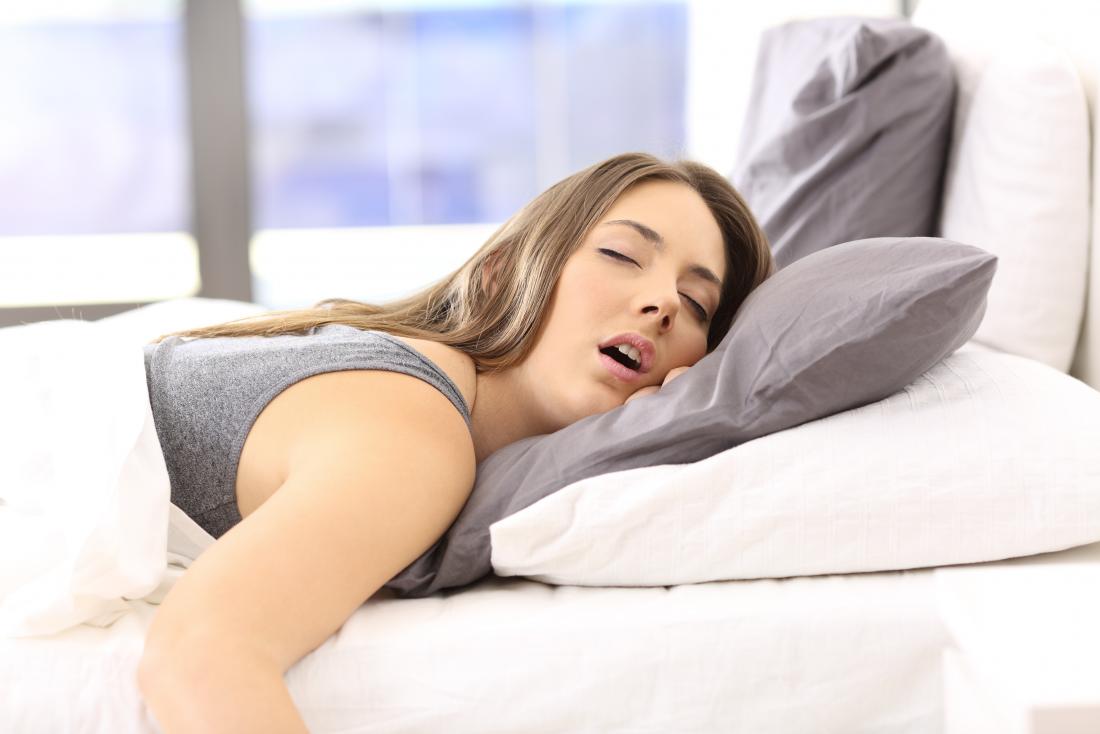Imagine waking up refreshed after a good night’s sleep, only to find an unexpected wet patch on your pillow. Drooling in sleep is something many of us have experienced, yet it often leaves you wondering why it happens and if it’s something to be concerned about.
You’re not alone in this curiosity, and understanding the reasons behind this nighttime phenomenon can be both fascinating and reassuring. We’ll dive into the science of sleep drooling, explore common causes, and share practical tips to help you manage or reduce it.
Whether you’re seeking peace of mind or just want to ensure your pillow stays dry, you’ll find valuable insights that could change the way you think about your nightly rest. Ready to uncover the secrets behind drooling in sleep? Let’s get started.

Credit: palmettoentallergy.com
Common Causes Of Drooling During Sleep
Drooling during sleep often occurs due to nasal congestion, sleeping on your stomach, or certain medications. Sometimes, it can result from sleep disorders like sleep apnea. Addressing these causes can help reduce excessive saliva production at night.
Drooling during sleep can be both embarrassing and uncomfortable. Understanding what causes it can help you manage or even prevent it. Many factors contribute to this nighttime annoyance, and they might be simpler than you think.
Position Of Sleep
The way you sleep can have a big impact on drooling. If you sleep on your stomach or side, gravity can cause saliva to pool in your mouth and spill out. Try sleeping on your back and notice if there’s a difference.
Nasal Congestion
Blocked nasal passages can force you to breathe through your mouth, which might cause drooling. If you’ve ever had a cold, you know how difficult it is to keep your mouth closed at night. Consider using a humidifier or nasal strips to ease congestion and keep your drool in check.
Excessive Saliva Production
Some people naturally produce more saliva than others. Conditions like acid reflux or allergies can increase saliva production. Paying attention to your diet and managing these conditions might help reduce drooling.
Medications And Side Effects
Certain medications can lead to increased saliva production or decreased ability to swallow. Check the side effects of your medication if you notice a sudden change in your drooling habits. Discuss with your doctor whether an alternative might be suitable for you.
Neurological Disorders
Neurological conditions like Parkinson’s disease or cerebral palsy can affect muscle control, leading to drooling. If you suspect a neurological disorder, consult a healthcare professional for a proper diagnosis and treatment options. Do you often wake up with a wet pillow and wonder if it’s more than just a quirky habit? Understanding these common causes can guide you towards a drier, more comfortable night’s sleep.
Medical Conditions Linked To Drooling
Drooling during sleep is often seen as a harmless occurrence. Yet, it can indicate underlying medical issues. Understanding these conditions can help address the cause of nighttime drooling.
Sleep Apnea
Sleep apnea causes interruptions in breathing during sleep. This can lead to excessive drooling. When airways are blocked, mouth breathing increases. This results in more saliva production. Drooling becomes more frequent.
Gastroesophageal Reflux Disease
Gastroesophageal reflux disease, or GERD, affects the digestive system. It causes stomach acid to rise into the esophagus. This can irritate the throat and mouth. Excess saliva is produced as a protective measure. Drooling can occur as a result.
Sinus Infections
Sinus infections cause inflammation and congestion in nasal passages. Breathing through the nose becomes difficult. The body compensates by breathing through the mouth. This increases saliva flow, leading to drooling.
Impact Of Lifestyle And Habits
Drooling during sleep often results from lifestyle and habits. Sleeping position, hydration levels, and nasal congestion can influence this. Adjustments like sleeping on your back or managing allergies might reduce drooling.
Drooling during sleep can be more than just an embarrassing inconvenience. Your lifestyle and habits play a significant role in whether you wake up to a wet pillow. Understanding these factors can help you make small yet impactful changes to reduce drooling and improve your sleep quality.
Dietary Influences
What you eat can affect how much you drool at night. Foods that are spicy or acidic can increase saliva production, leading to more drooling. Consider having these meals earlier in the day to give your body time to balance saliva production before bedtime. Eating large meals late at night can also contribute to drooling. Heavy meals keep your digestive system active while you sleep, which may cause increased saliva production. Try opting for lighter dinners and see if it makes a difference.
Alcohol And Smoking
Alcohol and smoking have a notorious reputation for affecting sleep. Alcohol relaxes the muscles in your throat, which can cause drooling. Cutting back on drinks, especially in the evening, might help reduce this. Smoking irritates your salivary glands, causing them to produce more saliva. If quitting feels daunting, start by reducing the number of cigarettes you smoke daily and notice the change in your drooling habits.
Hydration Levels
Your body’s hydration level is more important than you might think. Dehydration can lead to thicker saliva, making it more likely to pool in your mouth and cause drooling. Drinking enough water throughout the day keeps your saliva thin and manageable. But, be mindful of your water intake close to bedtime. Drinking too much water just before sleeping could disrupt your rest with frequent bathroom visits, making it harder to find that perfect balance. Are there any lifestyle tweaks you’ve made that improved your sleep? Sharing your experiences might just help someone else find their solution.
Home Remedies To Reduce Drooling
Drooling during sleep can be reduced with simple home remedies. Sleep on your back to keep saliva from pooling. Elevate your head slightly with an extra pillow to help prevent excessive drooling.
Drooling in sleep can be a common and somewhat embarrassing issue. It’s often harmless, but it can affect your comfort and confidence. Luckily, there are simple home remedies that might help you reduce drooling. Consider trying these easy tips and see if they make a difference for you.
Changing Sleep Positions
Adjusting your sleep position could be a game changer. Sleeping on your back helps gravity keep saliva where it belongs. If you’re used to sleeping on your side or stomach, you might notice more drooling. Try propping yourself up with pillows to encourage back sleeping. Switching positions might take some getting used to. Don’t be surprised if you wake up a few times during the night. But over time, your body will adapt, and drooling might decrease.
Using A Humidifier
Dry air can contribute to excessive drooling during sleep. A humidifier adds moisture to the air, which can help your mouth stay more comfortable. This simple device can make a big difference, especially if you live in a dry climate. Set up a humidifier in your bedroom at night. You might find that you wake up feeling more refreshed and with less drool on your pillow. It’s a small investment that can improve your sleep quality.
Herbal Solutions
Herbs like sage and peppermint might offer relief. Sage is known for its drying properties, while peppermint can help with oral hygiene. You can try sipping sage tea or using peppermint mouthwash before bed. These herbal remedies are easy to incorporate into your nightly routine. They might not eliminate drooling entirely, but they could reduce it. Plus, they bring additional benefits like fresh breath and better overall oral health. Have you considered trying these remedies? They could be the key to a more comfortable and confident night’s sleep. Don’t let drooling hold you back from enjoying rest—experiment with these home solutions and see what works for you.
When To Seek Medical Advice
Persistent drooling during sleep may signal underlying health issues. Consult a doctor if it’s frequent or accompanied by other symptoms. Addressing drooling early helps identify and treat possible conditions effectively.
Drooling in sleep can be embarrassing, but it’s more common than you might think. Most of the time, it’s not a cause for concern. However, there are situations when seeking medical advice is a wise step.
Persistent Drooling
If you find yourself waking up with a soaked pillow night after night, it might be time to pay attention. Persistent drooling could be a sign that something isn’t quite right. It’s not just about feeling uncomfortable; it could point to an underlying issue that needs addressing.
Associated Health Issues
Excessive drooling can sometimes be linked to health issues like sleep apnea, sinus problems, or neurological conditions. Sleep apnea, for instance, affects your breathing during sleep and might cause you to drool more. Have you noticed other symptoms, like snoring or daytime fatigue? If so, it’s worth discussing these with your doctor.
Professional Treatments
Medical professionals can offer treatments that might help. Depending on the cause, they might suggest medications, therapies, or even minor surgical procedures. Imagine the relief of waking up to a dry pillow after a good night’s sleep! Taking control of your health is empowering. If persistent drooling is bothering you, don’t hesitate to seek advice. What steps will you take today to ensure a better night’s sleep?

Credit: www.elmbrookfamilydental.com
Preventive Measures
Drooling in sleep can be managed with simple measures. Elevate your head with an extra pillow to help reduce saliva flow. Sleeping on your back might also prevent drooling by keeping your mouth closed.
Drooling during sleep can be embarrassing and uncomfortable. Fortunately, several preventive measures can help. By improving sleep hygiene, practicing breathing exercises, and ensuring regular medical check-ups, you can reduce drooling. Let’s explore these preventive steps in detail.
Improving Sleep Hygiene
A good sleep routine can minimize drooling. Start by setting a consistent bedtime. This helps regulate your body’s internal clock. Use pillows that keep your head elevated. This position reduces saliva pooling in the mouth. Keep your bedroom cool and comfortable. Darkness and silence also promote better sleep. Limit screen time before bed. Blue light can disrupt your sleep cycle. Opt for relaxing activities like reading or meditating. Avoid heavy meals or caffeine late in the day. They can interfere with restful sleep. Prioritize quality sleep to help reduce drooling.
Breathing Exercises
Breathing exercises can improve your sleep quality. They help you relax and breathe through your nose. Begin with deep breathing techniques. Inhale slowly through your nose. Hold your breath for a few seconds. Exhale gently through your mouth. Practice alternate nostril breathing. This exercise balances airflow and calms the mind. Close one nostril with a finger. Inhale through the open nostril. Switch and exhale through the other nostril. Regular practice can strengthen nasal breathing. Strong nasal breathing reduces mouth breathing, which reduces drooling.
Regular Medical Check-ups
Visit your doctor for routine check-ups. Regular visits help catch underlying issues early. Conditions like sleep apnea or allergies can cause drooling. Discuss any concerns with your healthcare provider. They can suggest treatments or lifestyle changes. A dentist can check for oral health problems. Tooth or gum issues may contribute to drooling. Early intervention can prevent complications. Regular medical evaluations ensure your overall health. A healthy body often leads to better sleep patterns. Improved sleep patterns can help reduce drooling.

Credit: www.medicalnewstoday.com
Frequently Asked Questions
Why Do I Drool In My Sleep?
Drooling during sleep is often caused by sleeping position or nasal congestion. When you sleep on your side, gravity can cause saliva to escape. Congestion can make breathing through the mouth necessary, leading to drooling. Ensuring proper sleeping positions and addressing nasal blockages can help reduce this occurrence.
Is Drooling In Sleep A Health Concern?
Occasional drooling is usually not a health concern. However, if it becomes excessive, it might indicate underlying issues like sleep apnea or neurological disorders. Consulting a healthcare professional for persistent drooling is advisable to rule out any serious conditions and ensure proper diagnosis and treatment.
How Can I Stop Drooling At Night?
To reduce drooling, try sleeping on your back and keeping your head elevated. This helps minimize saliva flow. Addressing nasal congestion with appropriate treatments can also help. Maintaining good oral hygiene and staying hydrated can further assist in managing nighttime drooling effectively.
Does Stress Cause Drooling In Sleep?
Stress itself is not a direct cause of drooling during sleep. However, stress can lead to sleep disturbances, which might increase drooling. Managing stress through relaxation techniques and ensuring a comfortable sleep environment can help reduce its impact on sleep quality and drooling.
Conclusion
Drooling during sleep can be annoying, but it’s usually harmless. Understanding causes and solutions helps manage it better. Sleeping position impacts drooling; try different angles or pillows. Hydration and nasal health play roles too. Simple changes might reduce drooling and improve sleep quality.
Remember, it’s natural and common. Consult a doctor if drooling affects daily life or sleep. Stay informed, and take small steps to find comfort. Sleep well, drool less, and embrace restful nights.
